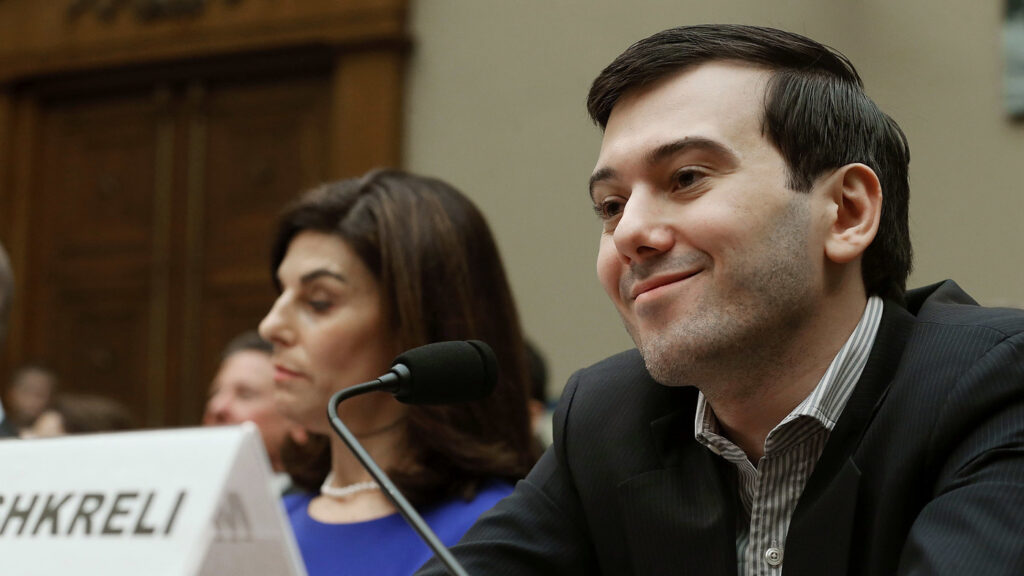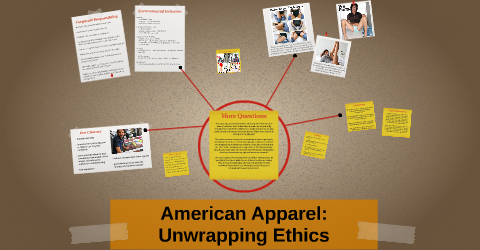Case Study Analysis – Turing Pharmaceuticals: The Ethics of Drug Pricing

Case Study Analysis – Turing Pharmaceuticals: The Ethics of Drug Pricing
Executive Summary
The given case discusses the US drug companies’ ethical dilemma between the responsibilities to their different stakeholders. A private pharmaceuticals company based in New York called Turing Pharmaceuticals (Turing) increases the price of one of its drugs called Daraprim by 5,000 per cent right after acquiring the manufacturing rights of the same from another company. This becomes a ‘’cause celebre’’ in the country, and put a spotlight on the general aberration within the overall pharmaceutical sector.
Following the price hike from $13.50 to $750 of Daraprim, public outcry rises, Daraprim patients start appearing in media, media begins slamming Turing and inducing outrage toward the company, and the US Parliament calls the company to testify before the Congress. The CEO of the company, Martin Shkreli, who is a notorious executive known with legal disputes, fraud, bankruptcy, and illegitimate handling of legal settlements, leaves the company, and is replaced by Ron Tilles, the new CEO. When asked, Shkreli defends the price increase by claiming that the company needs capital for R&D purposes, it has a profit obligation to its shareholders and investors, and more importantly, what Turing did is in the ‘’nature’’ of the US pharma industry which is known in the sector as ‘’dirty secret of pharma’’.
Now, Tilles and the new management struggles with retrieving Turing’s reputation; rebuilding trust in patients and public; suppressing the increasing criticism from the media and Congress; and striking the right balance between the profit-making obligation to its investors, and ethical-treating obligation to its customers.
This paper aims to analyze the case by identifying the problems, opportunities and challenges faced by Turing. This report also includes our SWOT analysis for the company, and Fishbone analyses for each problem we identified in the case. Further, alternative options that can be implemented have been introduced, and all alternatives have been evaluated by identifying the advantages and disadvantages of each. We have also provided a recommended course of action and implementation plan for Turing and the new management team to follow for the sake of successful crisis management.
We recommend that the company acknowledges that, in order to maintain a good reputation, and sustain the business, they need to take into consideration all stakeholders’ needs. Other than the economical responsibilities to fulfil against the shareholders and investors, the company should also work toward fulfilling the ethical and social responsibilities to its patients, the US public, media, and the government.
We highlight that, if the company proves its true intention for R&D studies and producing a next generation drug, engage with its all stakeholders, respect to their needs, reconsider its pricing and distribution strategies, and re-manage its practices from the ethical point of view, the new management may have a chance to re-maintain Turing’s reputation, and quell the public criticism.
I. Introduction
- Turing Pharmaceuticals (Turing) is a private pharmaceuticals company based in New York, US with a particular focus on serious disease treatment. In 2015, the company bought the manufacturing rights of a drug named Daraprim which is used in the treatment of a parasitic disease called toxoplasmosis usually seen in patients with the debilitated immune system.
- Following the acquisition, Turing increases the price of Daraprim from $13.50 to $750 per tablet which is more than 5,000 per cent increment. For a reference, the price of the same drug is $2.78 per tablet in Canada, $0.04 – $0.10 for two tablets in India, $9.75 for fifty tablets in Australia. Following the price hike, stories and critiques from the regular Daraprim patients start to appear in media.
- Martin Shkreli, a New York based executive with a rich background ripe with legal disputes, fraud, bankruptcy, and illegitimate handling of legal settlements, is the founder and former CEO of Turing. When media points out Daraprim’s radical price increase, and starts to outrage Turing, Shkreli stands behind his company’s action claiming that what unreasonable was the previous price point, not the new one, because Daraprim is a highly specialized drug.
- Shkreli also argues that the price increase is justified as the company plans to improve the drug’s efficacy and lessen the side effects, so all the revenue generated from the increment is put back into the company for R&D. Shkreli resigns from Turing in December 2015 leaving the CEO position to Ron Tilles.
- Contrary to Shkreli’s claims, Howard Dorfman, senior VP and general counsel at Turing, states that the company doesn’t have an official plan to advance Daraprim’s features, or produce a refined version. He indicates that he and some others in the company’s management were against the price increase.
- Dorfman adds that Turing reduced the distribution channels of Daraprim to a single closed model strictly controlled by the company itself. The new model allows the drug to be sold only by a program run by Turing. This new model allowed the company to set off an entry barrier for any competitors to produce a generic drug for Daraprim, and enjoy being the only manufacturer of such an important drug in the country for three years.
- Food and Drug Administration (FDA)’s director Keith Flanagan indicates that FDA approves production and commercialization of a generic drug within 10 to 15 months. This time period is challenged in the Full House Committee hearing as it allows the branded drug companies to enjoy their freedom of being the sole source of critical drugs for 15 months.
- In a Congressional hearing, another conflicting statement comes from Nancy Retzlaff, Chief Commercial Officer of Turing. Unlike Shkreli’s claim, Retzlaff indicates that only 60% of the company’s profit was put into R&D, not all. She also adds that the company is in loss for the current fiscal year which is challenged by the Chairman of the Congress by pointing out the fact that the company recently increased the salaries of some executives dramatically.
- Insurance companies are the ones that bear the burden of Daraprim’s price increase, but they transfer the burden to insurance holders by charging them higher insurance premiums. Retzlaff argues that only 3,000 patients in the country use Daraprim, so the distributed impact on insurance holders is not substantial.
- On the other hand, not all insurance companies cover Daraprim. Out of 3,000 Daraprim patients, only 25% of them are covered by their insurance to get Daraprim (GOP Oversight, 2016). Others are provided with the drug by certain public programs, or through Turing’s patient assistance program. However, some patients are pushed to pay astronomical figures to afford Daraprim on a regular basis, or try to find a sponsor before it’s too late for them.
- There are questions and concerns in the industry about the fine balance between keeping the critical drugs available for patients to afford, and maximizing the manufacturer companies’ profits to allow them to stay solvent and support R&D studies. Since there is no hindrance in the US against the companies to prevent them from pricing the drugs on the fly, it’s their sole discretion to decide how much high is reasonable and/or ethical.
- Turing grapples with how to justify the decision about the price increase, alteration of distribution model, and how to handle the outrage addressed by the patients, media, and the government.
- Whereas the company struggles to find the balance between its ethical, legal, and economic responsibilities to its different stakeholders; it’s also questioned whether there is a deeper systematic problem in US pharmaceuticals industry which is known as ‘’dirty secret of pharma’’.
II. Problem Statements
The following issues need to be addressed:
Problem 1: Company needs to justify the reasons behind the dramatic price increase of 5,000% of Daraprim.
Turing is in limbo between its different responsibilities to different stakeholders. On one hand, the company has an economic responsibility to its investors and shareholders as they expect the company to maximize its profits. The company claims it needs more capital too to invest in research and development of current and new drugs. On the other hand, the company has an ethical responsibility to the patients and public, as ethically, a critical drug like Daraprim should be kept available for the patients to afford, but 5,000% price hike in one go significantly affects such availability.
Considering other countries have an astronomically lower price for Daraprim, Turing is short of rational explanations to justify having it sold at $750 price point. In particular, it’s hard to defend 5,000% rise when the general inflation rate increases only 0.1% to 1.6% in the country.
Problem 2: Company needs to justify the reasons behind the change of the distribution model of Daraprim for the public.
As Dorfman confirmed, the new model played a significant role in maximizing returns for the company. Selling the drug through a private program run by Turing, rather than making it available in normal sales channels such as pharmacies, helped the company to prevent a competitor from reaching the drug and producing a generic version of it. This method allowed Daraprim to create a monopoly and be the sole producer of Daraprim for three years.
Problem 3: Public outcry is rising, Daraprim patients are appearing in media, media is slamming Turing, and the Congress is coming at the company.
The company’s founding purpose is to provide treatment for serious diseases. However, making a serious drug like Daraprim unreachable for the patients doesn’t sound serving such purpose.
The company should understand it has many stakeholders other than shareholders and investors, and different responsibilities to each stakeholder. When an organization focuses on satisfying one stakeholder’s need only, other stakeholders start outraging sooner or later.
Problem 4: Company faces the possibility of being charged a fine by the US Congress.
Congress accepts that the company need to make a profit and generate adequate revenue for R&D purposes (GOP Oversight, 2016). However, the fine balance between the company’s financial interest and drug availability for the patients is the ethical matter in question.
Problem 5: FDA takes up to 15 months to approve a generic drug that will stand as a competitor against the high-cost branded drugs.
Generic drugs are 80 per cent less expensive comparing to the branded drugs (GOP Oversight, 2016). When FDA takes a long time like 10 to 15 months to approve manufacturing of a generic drug, that time is added as an additional period for branded drug’s manufacturer to enjoy their monopoly of being a single supplier in the country.
Problem 6: There is no party in the industry, or the country that has the authority to uphold or dictate ethical pricing.
The trick with the pharmaceutical sector is that the competition between companies is not based on the same factors as in other sectors. The nature of drug industry doesn’t allow the consumers to say that ‘’I don’t like this company or its product, I’ll go with another company’’, because when you have a particular illness such as toxoplasmosis, you have to buy the toxoplasmosis drug from the toxoplasmosis drug manufacturer, you have no other choice. This obligation is obviously abused by the companies in the industry, and having no authority to regulate ethical pricing play into drug companies’ hands.
Problem 7: Turing’s Daraprim case sheds light on the US’ pharmaceutical industry’s ‘’dirty secret’’.
This case raises concern over having a deeper systematic problem in the country’s pharma industry as Turing isn’t the only company in the country hiking prices after acquiring rights of certain drugs. Mick Kolassa, a former director in the industry, claims that investors force drug companies to increase the prices, none of them asks them to make drugs cheaper. The matter in question is whether the lack of restrictions to bump up the prices push companies to go beyond the ethical limits, and how to maintain ethical pricing of drugs within the country.
III. Problem Analysis
SWOT Analysis for the group
| Strengths | Weaknesses | Opportunities | Threats |
| With the leave of Shkreli from the company, the remainder management can claim that Shkreli was responsible for the bad management and improper practices; now that he’s gone, Turing is / will be a clean company. | Company management is constantly lying. Shkreli claims that 100% of the net revenue was put back into R&D. Retzlaff argues that the company is in the loss. Lies don’t help the company to present itself a clean, honest company in the eyes of the public and the Congress. | Emphasizing the company’s future intention to create a superior version of Daraprim which will be more effective with fewer side effects can flatter the company in the eyes of the public and the Congress, and be one way to justify the price increase. | Media is the biggest threat for Turing. If the media keeps digging the company’s dirty linen and keeps accommodating the regular patients of Daraprim, Turing and the management will suffer from irreversible reputational damage. |
| Company has already allocated the major part of its net revenue generated from Daraprim sales (60%) to the R&D studies. This can be used to claim that the company has a true intention for producing a next generation drug. | Having Shkreli as the (former) CEO of Turing doesn’t help the company in terms of reputation. He was accused of improper management of legal settlements, fraud, and siphoning off money from his previous companies. | Having other US companies do the same as Turing in terms of price hikes after acquisitions can be named another opportunity for the company to claim that Turing is not a dirty company, what Turing has done is the ‘’nature’’ of the industry. | Since Daraprim’s new price is considered prohibitively expensive by the hospitals, patients are being switched to Bactrim. |
| The existing management of the company has ethical people inside as the management committee objected the price increase, as Dorfman stated. | Having the executives’ salaries recently increased dramatically doesn’t help the company to claim that the price increase was done because the company was in loss, and needed money. | Having no legal pricing regulation or limitation in the country is an opportunity for the company to defend itself as they didn’t do anything against the law (because there is no law). | Having only 25% of the patients covered by their insurances to get Daraprim means that 75% of the patients are forced to find another way to provide the drug. |
V. Identification and Evaluation of Alternatives
Identification of Alternatives:
- Considering that Shkreli has left the company, the new management can announce that Shkreli was the mastermind behind the aggressive price increase and unethical practices; the new management will come up with new pricing, and announce new corporate policies to maintain ethical stability of the company.
- The company can present an R&D plan to the Congress, and may arrange a press release for the media to show the same. The detailed R&D plan proves to the public and media that the company has true intentions in R&D, and the creation of a refined version.
- The company can announce a commitment to full transparency principle, and announce that more information and insight into the company’s investments and spending will be publicly available on its website.
- The company can contact all patients to make sure that all Daraprim patients are covered either by insurance, or public program, or Turing’s patient assistance program to get the drug for reduced prices. If all are covered one way or another, no individual will have to pay over the odds.
- Apart from the company, the US Government and the FDA can take some actions too:
a. The government can issue a policy to regulate drug pricing in the country to ensure ethical pricing in the pharma industry to eliminate the ‘’dirty secret’’ of pharma.
b. FDA can present a detailed document showing the process of new drug investigation and approval. If the process can be shortened, FDA further announces necessary changes.
Evaluation of alternatives:
Alternative 1: Considering that Shkreli has left the company, the new management can announce that Shkreli was the mastermind behind the aggressive price increase and unethical practices; the new management will come up with new pricing, and announce new corporate policies to maintain ethical stability of the company.
Pros:
- This will help the company to showcase its goodwill.
Cons:
- Making Shkreli scapegoat may not be enough for the company’s reputation to recover from the line of unethical decisions.
Alternative 2: The company can present an R&D plan to the Congress, and may arrange a press release for the media to show the same.
Pros:
- The detailed R&D plan proves to the public and media that the company has true intentions in R&D, and the creation of a refined version.
Cons:
- Such R&D plan will be a commitment for the company, if they cannot stick to it, Turing’s reputation will be adversely affected again.
Alternative 3: The company can announce a commitment to full transparency principle, and announce that more information and insight into the company’s investments and spending will be publicly available on its website.
Pros:
- Full transparency will help the company to be held accountable and credible before the public and law.
Cons:
- The more transparency the higher vulnerability. If the company cannot manage to be ethical or reasonable in its actions and practices, full transparency can backfire for them.
Alternative 4: The company can contact all patients to make sure that all Daraprim patients are covered either by insurance, or public program, or Turing’s patient assistance program to get the drug for reduced prices. If all are covered one way or another, no individual will have to pay over the odds.
Pros:
- Engaging with the community and patients sends a message to the public that the company acts responsive and responsible towards its customers.
Cons:
- It is quite expensive and difficult to reach each and every patient and more difficult to collect responses and feedback from them.
Alternative 5.a: The government can issue a policy to regulate drug pricing in the country to ensure ethical pricing in the pharma industry to eliminate the ‘’dirty secret’’ of pharma.
Pros:
- This step, if taken by the government, prevents companies to overprice the critical drugs at their sole discretion.
- Such regulation saves patients and the public from being at the drug companies’ mercy.
- If the industry has its proper regulation and legal conducts, uncertainty, instability, and overnight price-hike practices are removed.
Cons:
- The interference by the government, and setting price ceilings for the industry might affect the free-market nature of the sector.
Alternative 5.b: FDA can present a detailed document showing the process of new drug investigation and approval. If the process can be shortened, FDA further announces necessary changes.
Pros:
- The process, if shortened, allows generic drugs to penetrate the market faster and easier. This increases the competition in the market, and minimize the monopoly periods of the branded drugs’ manufacturers.
- Faster introduction of generic drugs to the market will be of sure benefit of the patients as the generic drugs are 80 per cent cheaper than their branded equivalents (GOP Oversight, 2016).
Cons:
- Shortened approval time may discourage drug manufacturer companies to spend tons of money to conduct R&D, study, invest time and effort to produce a drug. If the approval period gets too short, then before the branded drug companies adequately enjoy a return on their investment, a generic drug company come and produce a cheap equivalent of the same drug.
- If the approval period gets shortened, then some necessary protocols and requirements may have to be removed by FDA, which may cause a bigger problem than before as such protocols are in place to make sure that the generic drugs are produced in proper conditions and they are the adequate equivalent of their branded versions.
VI. Recommended Course of Action
The following course of action should be implemented to address the problems:
- The company starts with acknowledging that it has many stakeholders, not only shareholders and investors, and it carries different responsibilities against each of its stakeholders. Sustainability for a company comes with taking care of all stakeholders’ interests, and satisfying each of them, and fulfilling ethical, social and economic responsibilities to all, together (Carroll & Brown & Buchholtz, 2018).
- The new CEO, Tilles, stresses that they were against Shkreli over the aggressive price increase, and his unethical managerial decisions. Turing will announce a price change for Daraprim. The new pricing will not talk to shareholders’ and investors’ interests only, but also the patients’, and public’s. It will take into account the drug availability for the patients, the company’s financial status, general inflation rate, and the company’s R&D plans, all together.
- The new pricing will somewhere between the former and new prices, and in order to justify the reasons behind the price increase, the company will highlight that the current version of Daraprim was developed 62 years ago by Impax which causes the need for a refined version, and so requires intensive research and development.
- Further defending the price increase, the company will emphasize that Turing’s patient assistance program continuously helps the patients get Daraprim at a reduced price. This may flatter the company in the eyes of media, public, and Congress.
- The company will commit to full transparency principle, and announce that more information and insight into the company’s investments and spending will be publicly available on its website.
- The new management will issue Stakeholder Engagement Policy, and form a special committee to ensure that all stakeholders’ interests are fulfilled. Such committee will investigate and make sure that the current distribution model of Daraprim doesn’t jeopardize the drug’s availability to its patients.
- The company will present a detailed R&D plan to the Congress, and arrange a press release with the media to prove that the company has true intentions in R&D, and the creation of a refined version. Turing will immediately initiate R&D studies accordingly.
- The company will contact all patients to make sure that all Daraprim patients are covered either by insurance, or public program, or Turing’s patient assistance program to get the drug for reduced prices. If all are covered one way or another, no patient will have to bear any high price individually.
- Considering that Turing is not the only company in the country that has ‘’price-hike after acquisition’’ practice, the US Government will issue a policy to regulate drug pricing in the country to ensure ethical pricing in the pharma industry and eliminate the ‘’dirty secret’’ of pharma.
- Considering that the FDA’s approval time directly or indirectly allows monopolies to occur in the industry, FDA will present a detailed document to the Congress showing new drug investigation and approval process. If the process can be shortened, the FDA will further announce necessary changes.
VII. Implementation Plan
Immediate Actions:
- For the purpose of reaching an optimum price point that talks to all stakeholders, the new management will immediately start working on the new pricing strategy for Daraprim.
- The company will immediately commit to full transparency principle, and announce that more information and insight into the company’s investments and spending will be publicly available on its website.
- Turing will submit a detailed R&D plan to the Congress and the media, and kick off the R&D studies immediately.
- The new management will issue Stakeholder Engagement Policy, and form a special committee which will be responsible for ensuring all stakeholders’ interests are fulfilled. Such committee will investigate and make sure that the current distribution model of Daraprim doesn’t jeopardize the drug’s availability to its patients.
- The company will immediately contact all patients to make sure that all Daraprim patients are covered either by insurance, or public program, or Turing’s patient assistance program to get the drug for affordable prices.
Short-term Actions:
- Considering that Turing is not the only company in the country that has ‘’price hike after acquisition’’ practice, the US Government will issue a policy to regulate drug pricing in the country to ensure ethical pricing in the pharma industry and eliminate the ‘’dirty secret’’ of pharma.
- Considering that the FDA’s approval time directly or indirectly allows monopolies to occur in the industry, FDA will present a detailed document to the Congress showing new drug investigation and approval process. If the process can be shortened, the FDA will further announce necessary changes.
Long-term Actions:
- R&D studies will (hopefully) come to fruition, and the company will launch the next generation version of Daraprim.
- The company’s website will be kept up to date in accordance with the full transparency principle of the company.
- In the long run, the company will keep monitoring its practices from the ethical and stakeholders’ interests perspectives.
VIII. Conclusion
In summary, the drug companies in the US have to choose whether (a) they will capitalize on (or abuse) the lack of pricing regulation in the pharma industry, and put astronomical price tags on drugs for the sole benefit of the company and its investors, or (b) they will consider all stakeholders’ interest, and try to fulfil ethical, social, and economical responsibilities to all of them. While the first option may sound tempting in terms of favorable financial returns in short term, sustainability for a company comes with acting responsible to all stakeholders, and the companies should also consider the long-term consequences of engaging in any unethical behaviour.
In order to rebuild trust in patients and public towards the company, Turing will use resignation of Shkreli as an opportunity to claim that the dead wood was Shkreli, now that he’s gone, the company is clean, and will act in an ethical way. R&D planning, Stakeholder Engagement Policy, and re-consideration of pricing and distribution strategies will hopefully please the company’s all stakeholders, and help Turing to retrieve Turing’s reputation and quell the public criticism.
References
Bodhanwala, S., Bothra, S. (2017). Turing Pharmaceuticals: The Ethics of Drug Pricing. Ivey Publishing.
Carroll, A. B., Brown, J. A., Buchholtz, A. K. (2018). Business & Society: Ethics, Sustainability & Stakeholder Management. Boston, US: Cengage Learning.
GOP Oversight. (2016). Chairman Chaffetz Q&A – Developments in the Prescription Drug Market: Oversight. [Video file]. Retrieved July 14, 2020, from https://www.youtube.com/watch?v=_-f6rQ1PZGw&feature=youtu.be
GOP Oversight. (2016). Mr. Farenthold Q&A – Developments in the Prescription Drug Market: Oversight. [Video file]. Retrieved July 14, 2020, from https://www.youtube.com/watch?v=1mxVk9zUMC8&feature=youtu.be





